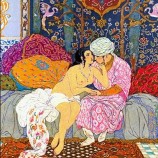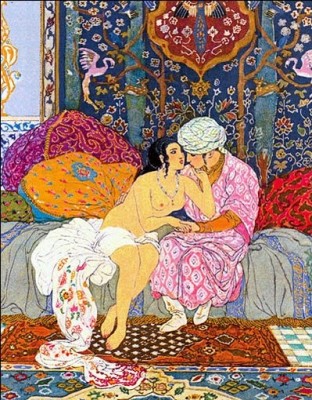
To grow is to put ourselves aside and go in direction of something more, something that doesn’t exist, or follow through with something we have already begun and want to complete, enlarge or enrich. Throughout our lives we set goals for ourselves, objectives, and at the center of these objectives is our self. The central question is: ‘What kind of person do I want to be and what do I do to walk in this direction? That is, what are my ideals, what qualities do I believe that I should have to feel better, happier?
The objectives of individuals vary, the ideal of one may be different from the ideal of another, but one way or another we all imagine what we could or would like to be, being better at this or that. Having an ideal then is something very general, something that we all have and aspire to.
It might not be clear for each of us all of the details of our idealized self image. But even that which we are not conscious of is present, operates, and drives us. To fully perceive our own ideal we have to know ourselves well.
Many times we may think that we know ourselves because we can describe ourselves: I like this and that and I do not like these other things. I think those who are a certain way are right and I think this and that is wrong. But this type of self description is only a beginning. We only really dive deeper when we know why we hate and love certain things. Do I like something because everyone likes it, or because my father taught me that this is good, or because my religion teaches that this is good? These are the types of questions that can gradually lead us from self-description to self-comprehension. To know the causes of our attitudes, our sympathies and antipathies. To achieve this, it is necessary to observe oneself carefully and have the courage to make discoveries, to face the truth about what is most intimate in us.
Apparently it is good to have an ideal, something that drives us, that gives purpose and meaning to life. But our attitude towards these ideals can be unhealthy and so seeking this ideal becomes an ordeal, a bitter struggle and destructive. Mira Alfassa says: “Why get so uptight and tense to accomplish your concept of truth? Be more flexible, more confident. Tormenting yourself to act rightly produces results as bad as an ill-will alone.” Many times the ideal that we have turns us into our own executioners. The person creates an ideal of perfection and ends up punishing himself internally, despises, or hates ones’ self for not accomplishing that ideal. Within this process there is a division within us, a part of us identifies with the ideal – it feels pure, noble and strong – and beats up the rest of our self for not living up to this ideal.
This self-contempt can often be the result of other people’s attitudes towards us. The person may have had a father or a mother who was very critical, which saw only defects and that always used punishment when things were not done the way they wanted. In childhood we are human beings so fragile and sensitive that a father or a mother who has this kind of attitude over the years can leave us a deep, painful scar. As adults we begin to criticize ourselves just as we were once criticized. The parent becomes internal, with or without our knowing. So, we are insecure adults, with low self-esteem in several areas of our life, practicing self contempt, blaming ourselves for events over which we have no responsibility.
Related Articles















